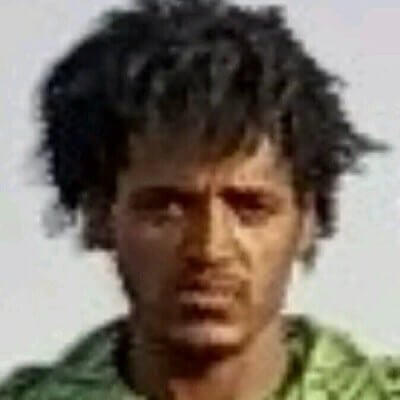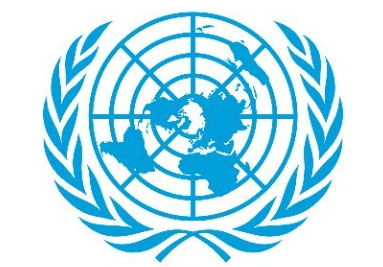ፋኖን እወዳለሁ፥ ፋኖንስ አልጠላ፣
ተኳሽ እወዳለሁ፥ ተኳሽም አልጠላ፣
ሲደክመኝ አርፋለሁ፥ በጎፈሬው ጥላ።
ፋኖ አገሩ ገባ፥ ሳይሰናበተኝ፣
እሸኘው ነበረ፥ ምንም ቢታክተኝ።
Author Contact Information:
Girma Berhanu (Professor)
Department of Education and Special Education
University of Gothenburg, Sweden
E-mail: Girma.Berhanu@ped.gu.se

This is the story of a brave warrior, Molla Melaku, a tribute to his valor and a testament to his commitment to Fano. It is an appreciation to his uunwavering courage. The story stands as a poignant reminder of the courage and sacrifice made by a young Fano in the town Woldiya during a confrontation with the Oromumma soldiers of Abiy Ahmed – the Ethiopian prime minister who claims to rule for all but in practice has staked his power on Oromo radicalism at the expense of Amhara citizens.
I have had the privilege of talking to W/ro Muhalit Negash, the mother of Molla. I have also spoken to his older brother, Tesfa Melaku. They both live in Dore Gibir, near Woldiya.
Weldiya or Woldiya (Amharic: ወልድያ) is a town which serves as the regional capital of North Wollo, located in northern Ethiopia. It is found to the north of Dessie and southeast of Lalibela, both in the Amhara Region, at the considerable elevation of 2112 meters above sea level. Perhaps its most notable landmark is the church Woldiya Gabriel. As recently as 11 August 2021, the Tigray Peoples Liberation Front (TPLF) captured Woldiya from government control, but it was recaptured with the help of Fano in December 2021.
Melaku’s family are subsistence farmers. Melaku’s father passed away several years ago. Like many Amhara peasants, they struggle to get by. The TPLF attack of August 2021 not only destroyed most of the facilities in the region, but also devastated families. For the TPLF rebels, looting and plunder were the name of the game and nothing was spared. This predicament was especially dire for women, who were seen as war trophies and denigrated for the Amhara ethnicity while being subjected to sexual abuse. At the time, Fano helped the central Ethiopian government regime recapture the region from TPLF control, but the alliance was short-lived. Weary of owing his power to the Fano militia, Prime Minister Abiy Ahmed then unleashed his government troops against Fano, and did so using the oldest – and dirtiest– trick in the book: ethnic strife. The Ethiopian leader is aware that his Oromo constituents, particularly the radicalized youths intoxicated with Oromumma ideology (in short, Oromo supremacy), hold a grudge against Amharas. To this end, he fanned the flames of ethnic hatred and unleashed his troops against Amhara region, which was now left with the Fano militia to defend itself.
Melaku joined the Fano movement about three years ago in connection with the invasion of the Amhara region. Melaku had been devastated by the large-scale killings and grave human rights violations which followed the implementation of the ethnic-federalist system in the country, according to his brother. In most of the cases, the mass murders were silent with perpetrators from various ethno-militant groups. Ethnically motivated attacks against the Amhara have been reported on a weekly basis, with mass graves being discovered in various locations where Melaku lived. The Popular Movement “Fano” widely appeared during the latest civil war in Ethiopia. The members of this militia fought alongside the Ethiopian military to stop the advancement of the Tigray Defence Forces, who controlled large areas in the Amhara region and were proceeding towards the capital Addis Ababa.
Fanos were not rewarded for their heroic fight against the invaders. Abiy Ahmed’s regime wanted to disarm the Fano fighters and the Amhara special force. Which is why Melaku, who felt betrayed by the Abiy’s dishonest and apartheid policy of endangering the lives of the Amhara people, went back to the Fano forces. He had been fighting the last 8 months pushing back the regime’s forces. According to his mates he was very brave, inspiring and determined. His 19 years old younger brother had been by his side all along until the last moment: that is, until Melaku was shot in the back, specifically on his right side. This happened during a fierce battle against Oromo speaking soldiers. His younger brother, Adimo Melaku, carried his wounded brother in the back and brought him to the Woldiya hospital. According to some Fano fighters which I managed to reach, Melaku had shot scores of the soldiers before being wounded. His unwavering courage has won him respect among his mates. His brother told me that Melaku was extremely disciplined, resolute and firm in all what he did. Several years ago he managed to reach Saudi Arabia by walking thousands of kilometres on foot and crossing the Red Sea using a small boat. Once in Saudi Arabia, he did a range of semi-skilled jobs and returned home because of health matters. Until the war broke he had been supporting the family (his widow mother) on the farm. Even during the past three years as an active Fano he has been on and off going back home to help in farming and other activities. Melaku had seen with his eyes that the soldiers of Abiy Ahmed mercilessly took all their cattle, the food grains farmers stored, and fertilizer.
Once he was brought to the hospital by his brother, Adim Melaku, Molla was being treated for his wounds via Glucose and other tubes. Ventilator, Monitoring equipment and IV lines and pumps were applied. His mother was by his side. The soldiers entered the hospital and were searching for him singing and shouting in Oromigna. They had information that the young man who was the fierce fighter was wounded and under treatment. Whoever informed them we have no clues for now. The Oromigna speaking soldiers broke down the tubes and other medical equipment installed for the patient. They mistreated the mother. They were unrespectful of the medical staff. They took him to unknown place and cut his throat. The older brother who I talked to confirmed that the neck was severed or sliced off. What I heard from other sources was that they ran over his dead body using military vehicle. The brutality is unspeakable. When they took him away from the hospital bed, Melaku shouted that he is a proud Amhara; that he is proud being associated with the Asamnew Brigade. Amhara shall win! Ethiopia will prevail! These are his last words. His heroic death has inspired hundreds of young people including some medical staff to join the Fano movement.
Fano is a response to this kind of injustice. Melaku was not only a great fighter. He was an articulate who can intellectualize the danger that the country is in. Fano is not just an embodiment of the physical defiance but also an intellectual movement that abhors ethnic fascism, narrow nationalism, apartheid policies, internal colonialism and all forms of pseudo-legal acts of political corruption. Instead, it upholds a civic sense of public duty, patriotism and vision for the good of the entire country. Melaku embodies these principles according some informants. This aspect of the Fano movement brings back memories of “Fano” heroism which was a resistance led by Ethiopians against the Italian occupation. The current resistance boasted about belonging to the Fano heritage, and the Ethiopians even started singing poems about those who took up resistance against injustice. A song about Melaku’s heroism is in the making.
Despite being an unpaid, under-resourced, self-armed volunteer defence group, Fano has proven to be a complete game-changer in the current war directed at destroying Ethiopia and eradicating the Amhara population. Fano has continued its offensive on the enemy with perseverance and bravery until the safety of the people of Amhara is assured and until the fascist forces cease to cause suffering on Ethiopians ever again. Fano has carried out successive lightning offensives on enemy forces that had been deployed in the Amhara region. And, Fano is determined to carry out successive offensives and score victories until the safety of the people of Ethiopia is secured regardless of where the enemy resides and how intensely it fortifies itself. The Fano are feared groups of fighters, not because they fight for glory but to save their people from annihilation. They are the embodiment of Amhara spirit and defendant of Ethiopia throughout history.
We should assure the generation to come that we plant rows of flowers that bloom all year long celebrating the selfless live of Melaku. Will the bugle play at dusk and dawn as they lay gently on the ground where they came from? Will there be commemoration days to celebrate Melaku’s and other Fanos lives? Where the band plays a marching tune in celebration of all they have given to the Amhara people around them? Where I ask is this place for our unsung heroes?
Today, the world seems a little darker to me. A flame that once shone brightly has been put out by the Fascist regime of Ethiopia. A flame that burnt so brightly to its very end. Today, our brother lay in sleep forever. An unsung hero, neither rich nor famous, but someone who impacted so many lives, brought a sense of heroism and inspiration to countless young emerging Fano and most of all a genuine human being who lived an honorable life. A true unsung hero.
Melaku is no ordinary man. Here’s a man that had all the right to complain about the unfairness of life in his Ethiopia, how it repeatedly dealt him a bad hand, and that it costed him the lives of his numerous neighbors and fellow Amharas in the region. Yet, in his thirty four years, the brother remembers that never once did he complain or feel sorry for himself. He embraced all that life threw at him. He’s the classic tale of “when life throws you lemons, you make lemonade”.

















